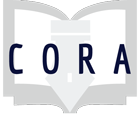A primer on how to read academic articles by guiding the class through a series of questions. Give students 5-15 minutes per slide to answer the questions (individually or in groups) before talking about their answers to questions with the whole class.
Assignments
This lesson on journal prestige could be taught by itself, as part of a series on scholarly communication, or as a small part of a larger lesson on information prestige.
This is an activity to get students to think critically about the sources and information presented in a Wikipedia article.
This lesson on the nature and cost of scholarly publishing could be taught by
itself, or as part of a series on scholarly communication, or as a small part of a larger lesson on
information privilege.
An open access MOOC in French to bonify the information literacy skills of university students (with Moodle).
In post-session feedback, first-year students frequently express anxiety over how to physically navigate the library to find a book on the shelf. This is a simple, pre-session activity to help students try this out before class, so that they can discuss with their librarian any challenges they faced in attempting to complete the task. With the help of the course instructor, students are asked to find a book on their research topic (or course topic) and bring it to class.
Through the course of researching a topic, students will learn about differences in types of information and how to use research to gather relevant terms to narrow a topic.
This class outline is based on the Four Moves and a Habit from Mike Caufield's Web Literacy for Student Fact Checkers.
It was designed for a first year writing class for students in an interdisciplinary STEM major. For their main class assignment, they were investigating a "fact" within their chosen scientific field, and tracing it to its origin. In addition to our in-class work they were also assigned to read:
This is an activity that helps students develop an interdisciplinary search strategy in stages. Students define their topic, brainstorm questions related to their topic area, and connect these questions to the disciplines and experts where they might find more research and information. Students learn how to identify search tools & information sources based on their questions using the library’s website.
This essay assignment asks students to reflect on their research process, evaluate on their sources, and reflect on social justice implications in reference to Catholic social teaching.
